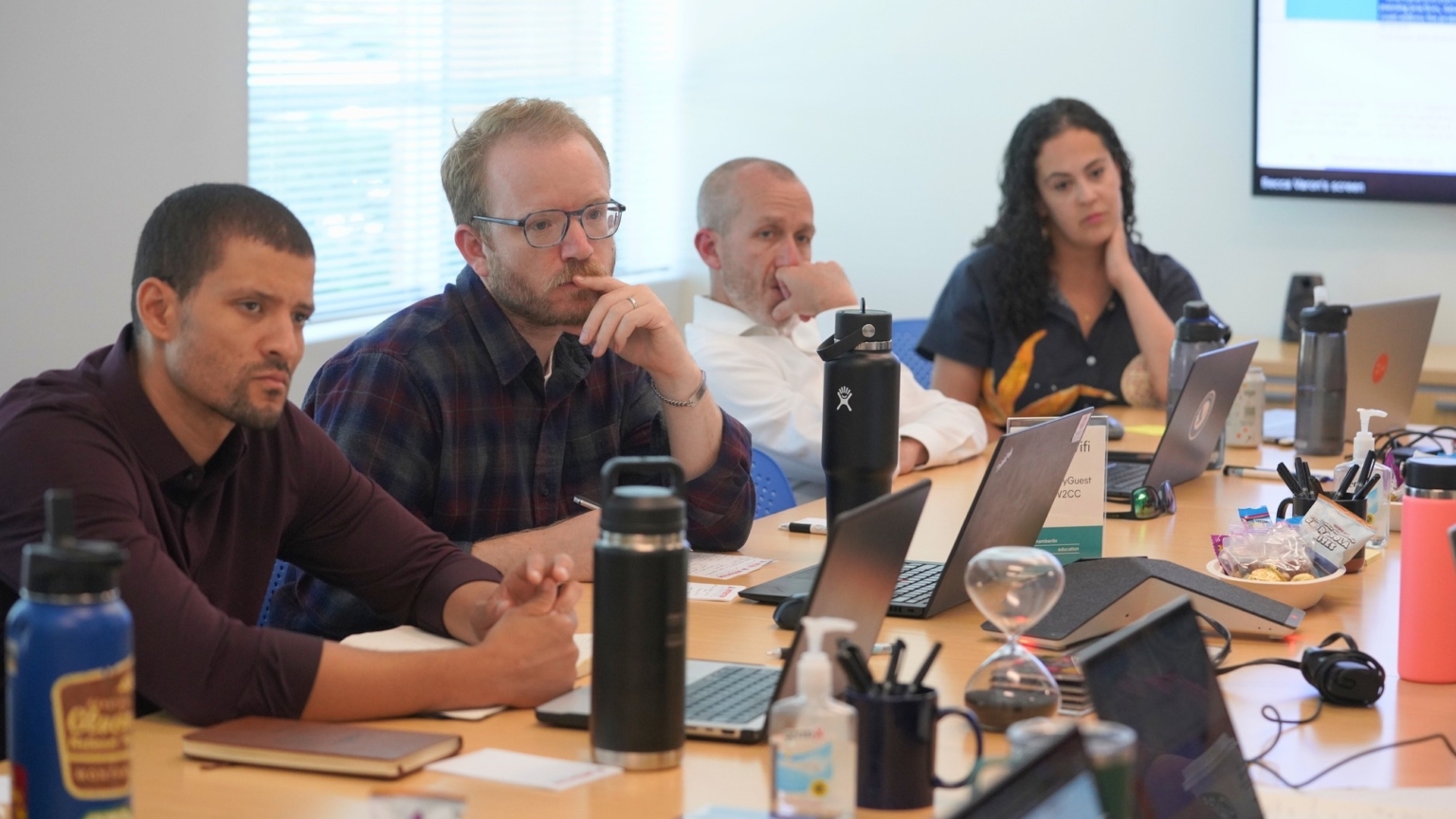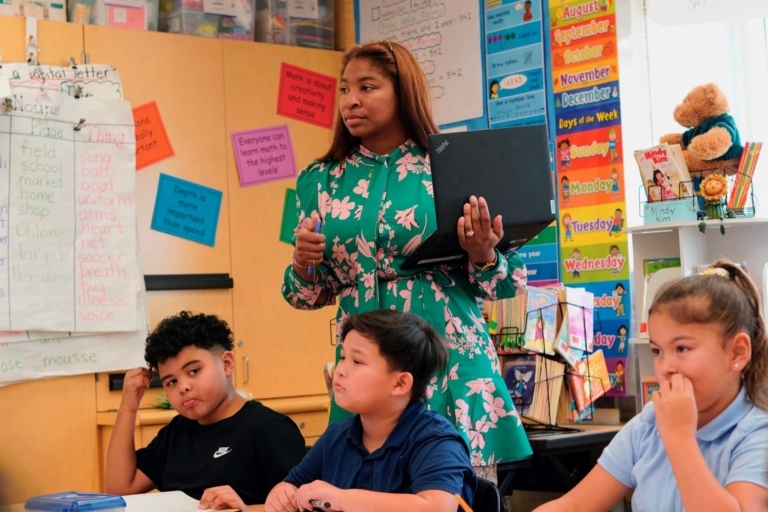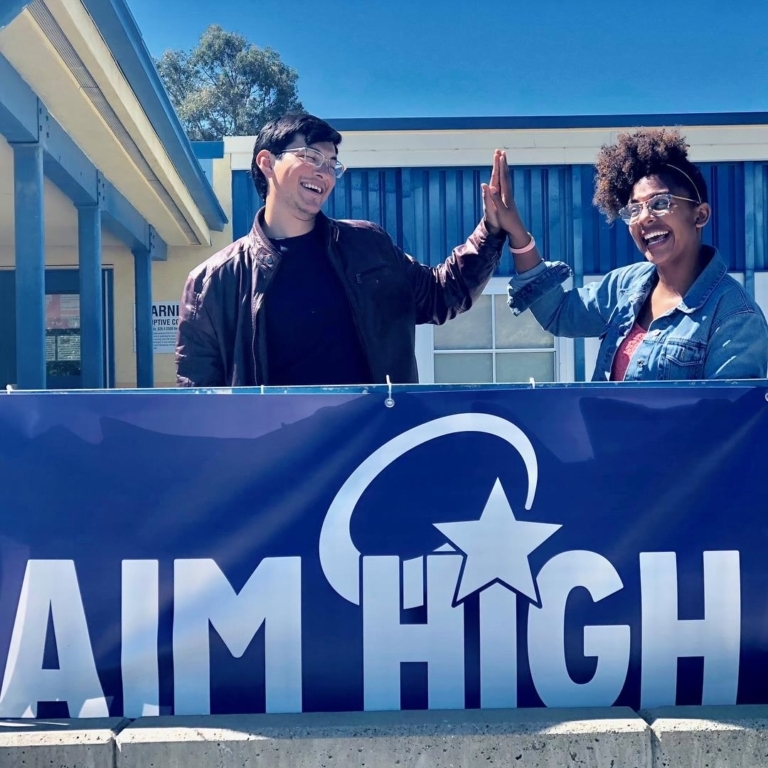Michael Burks is the Chamberlin Education Foundation’s Director of School Partnerships. In this role, he leads CEF’s strategy to strengthen academic outcomes through equity-centered collaborations between schools, community partners, and the foundation.
His belief in this work is grounded in a proven track record of school transformation. As a 4th-grade teacher at KIPP Comienza Community Prep, his team drove over 80% of students to proficiency in ELA and Math. Later, as Principal of KIPP Bridge Academy, he led dramatic improvements: reading proficiency on DIBELs rose from 9% to 69%, and math proficiency on the SBAC jumped from 20% to 43%. Under his leadership, the school also reduced suspension rates from 12% to 0%.
A first-generation educator with over a decade of experience as a school leader and coach, Michael has dedicated his career to championing inclusive education. His journey, which spans from Brooklyn and Los Angeles to Oakland, is now focused on West Contra Costa.
We sat down with Michael to discuss the insights he’s gained since joining the CEF team this summer, the experiences that shaped him.
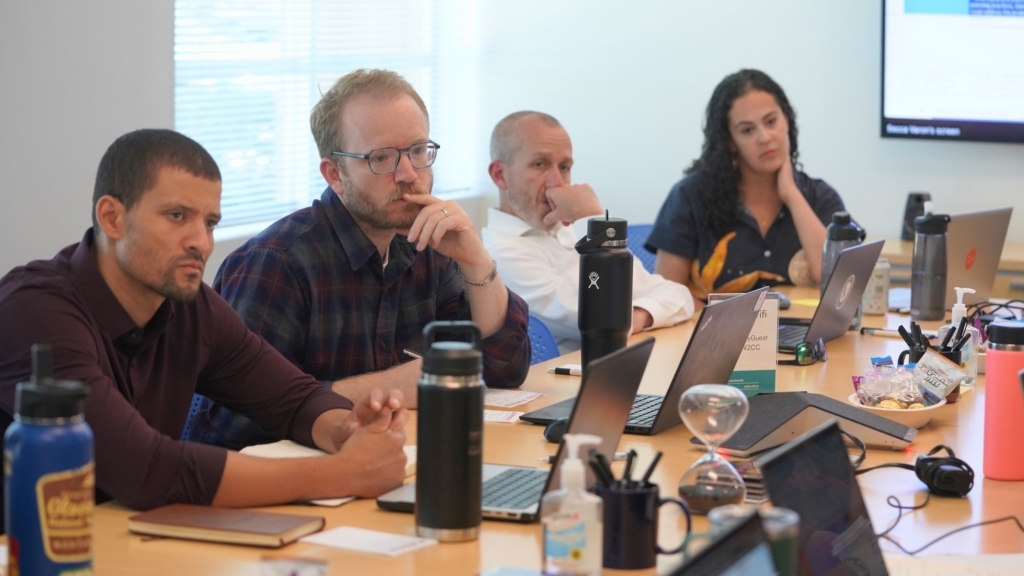
1. What gives you hope and optimism about the future of West Contra Costa public schools?
Michael Burks: The people give me hope. There is a palpable love for kids and a willingness to roll up sleeves. What excites me most is that educators here value learning for themselves. Principals want to be with other principals to become better leaders, and teachers want to collaborate with other teachers to improve their practice. That orientation toward their own growth is essential for serving kids well.
I’m also optimistic about the adoption of Eureka Math Squared and the ongoing conversations about early literacy and the science of reading. I’m excited to be a part of the team and see how we can support the effective implementation of these tools to ensure kids get the best instruction possible.
2. As the Director of School Partnerships, what is your vision for supporting schools in West Contra Costa, especially around strengthening teaching and learning and improving academic outcomes?
Michael Burks: My vision starts with relationships. People are our most valuable resource, so my first step is to get into schools and learning spaces to get to know principals, district staff, and teachers. Building those bonds and that trust is the bedrock of all great work.
Once those relationships begin to bud, I want to learn. I have worked in Oakland, Brooklyn, LA, and San Francisco, but I am new to West Contra Costa, and that is not lost on me. I need to humble myself and learn the context here—where we’ve been, where we are now, and where we’re trying to go.
With the foundation of strong relationships and an understanding of the context, then it’s about growing. From meeting with principals, it’s clear that everyone loves kids and has a vision for serving them and ensuring they can thrive. The focus of our growth will be on creating the right conditions, including safety, consistency, and support, that allow educators to provide a world-class education.
I see my job as a connector. I will be in those spaces to hear directly from school leaders and teachers about what’s working and what the challenges are. Then, I want to learn about the partners and organizations that can provide supports, and connect those parties. The goal is that every kid walks into a space with a teacher who feels supported, clear, and confident, and who is supported by leaders who feel the same way.
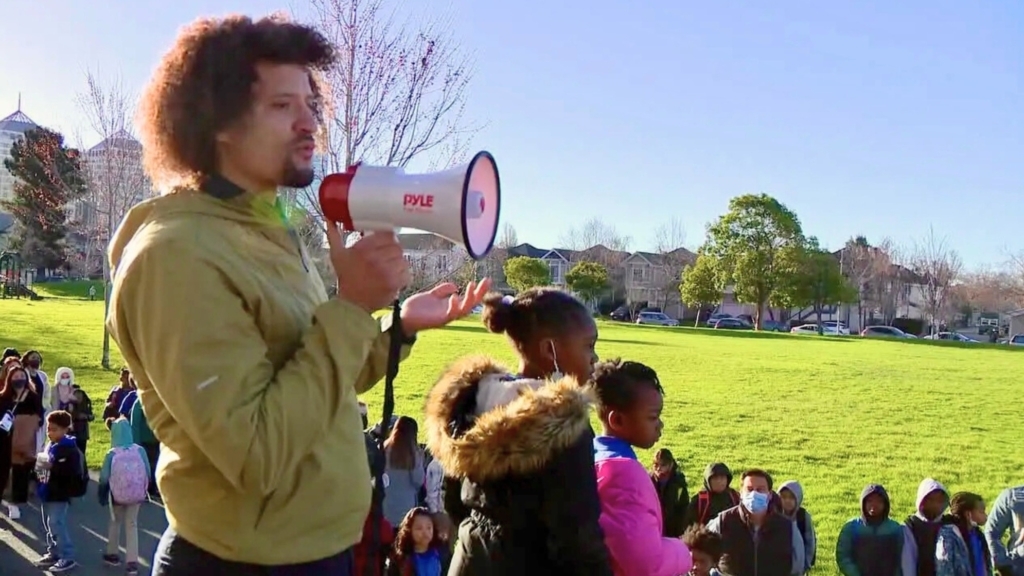
3. What drives your passion for a career in education? How has your personal background shaped your professional journey?
Michael Burks: My passion comes from three places. First, I do this work to honor my ancestors. My mom immigrated from Portugal, and school was a place where, as a multilingual learner, she didn’t feel seen, heard, or valued. On my dad’s side, my grandparents are from the South, and my great-grandparents were sharecroppers. Their choices were about survival, not passion. It is my duty to honor their sacrifice.
Second, it’s about leveraging my ability to choose. In college, I thought I wanted to be a lawyer, but the finances didn’t add up. My father asked me what I did in my free time, which was mentoring, tutoring, and coaching. He told me to focus on what I love, and the money would follow. He realized that I was the first generation in our family able to make a choice based on passion, not just economic survival. That drives me to use my access to help increase other folks’ access to resources and choice-filled lives.
Third, and now most importantly, I do this as a father. I want my daughters to walk into spaces where they are seen, heard, and valued, and can thrive because of that. My sister and I were the only two Black kids in our entire school district. We succeeded in spite of not being seen, not because of it. That is exhausting, and I want to create a different educational ecosystem for my children and others.
4. You have worked in major urban school systems from Brooklyn to Oakland. What are some opportunities and challenges you see here in West Contra Costa County?
Michael Burks: A major opportunity and strength is the people. The educators and leaders here love kids and want what’s best for them. There is a grassroots ethos of collaboration; principals are connecting with each other to work as a team on behalf of their teachers and families.
Another exciting opportunity is the district-wide adoption of the Eureka Math Squared curriculum. Having high-quality instructional materials creates alignment and a common language for teachers across different schools, which fosters a sense of community and collaboration that teachers have been eager for.
A significant challenge, as in many districts, is resources. We are in a space where funding is dwindling, which forces incredibly hard decisions about prioritization. We have to be strategic about where we put our energy and resources to have the greatest impact.
This is especially critical for implementing new curricula. A curriculum is never a silver bullet; its success hinges on effective implementation. We must ensure that school leaders and teachers have the support they need, so that a year from now, they don’t feel that the curriculum was ineffective simply because they lacked the tools to implement it effectively.
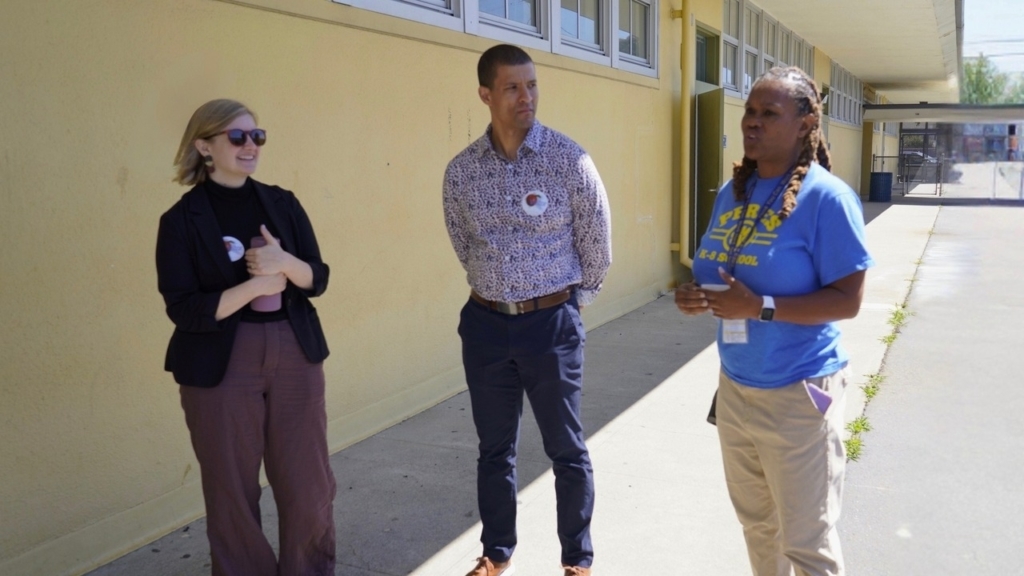
5. Reflecting on your journey as a school leader and coach, what is one insight or lesson you might offer to educators striving to cultivate a highly effective classroom environment?
Michael Burks: The most important investment a teacher can make is in their own preparation. Thoroughly understanding a lesson and getting ready to teach it is the most effective thing you can do for every student in your classroom. It took me a few years to realize that I often put my energy into the execution and data analysis, but the gaps in my execution usually came from gaps in how I had internalized and prepared for the lesson.
I liken it to surgery. You would never want a doctor who hasn’t internalized medical practices and prepared for your specific procedure. For us, it is our students’ lives at stake. We know the life-or-death outcomes for a child who isn’t reading fluently by fourth grade. The more effective the internalization and preparation, the more students will learn and grow during the lesson.
6. Who are some of your mentors, and how did their guidance shape the leader you are today?
Michael Burks: My dad was the first African American police officer in his department. He showed me how to infiltrate and shape spaces that were not made for us through consistent action and knowing your own worth.
My mom showed me the power of consistently showing up for those you love over a long period of time. In schools, that consistency has a profound impact on kids and community.
My grandmother taught me the power of forgiveness. She never forgot, but she always forgave, believing that a person’s mistake was not their highest self.
My sister has taught me patience, acceptance, and adaptability. She showed me how to slow down, accept things as they are, and then respond, rather than creating stress by trying to force immediate change.
